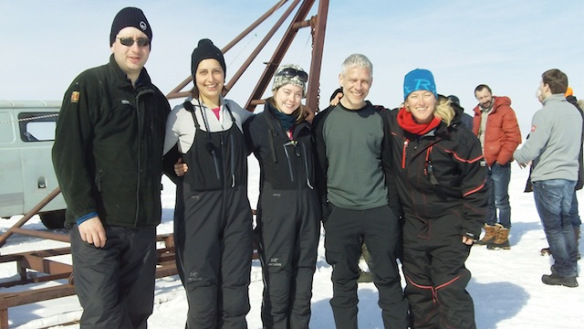
March 7, 2013, by Claire
And we think the weather is cold in Nottingham…
We have had an update from our staff currently working on research in Siberia.
A new NERC funded project is investigating recent environmental change in the World’s deepest lake, using silicon isotopes.
Lake Baikal, which formed over 20 million years ago, is the world’s most voluminous lake, containing c. 20% of its freshwater. This “most outstanding example of a freshwater system” is a biodiversity hotspot with over 2,500 plant and animal species, of which over 75% are thought to be endemic. Exactly why it was designated a UNESCO World Heritage Site in 1996.
However, since the mid 20th Century the lake has been under increasing pressures from agriculture, industry and tourism. Global warming pressures are also evident with ice coverage of the lake in winter months declining over recent decades. The full impact upon Lake Baikal’s unique ecosystem still remains to be fully understood in order to help mitigate future impacts.
Researchers from the School of Geography (Dr. George Swann, Dr. Suzanne McGowan, Dr. Virginia Panizzo and Sarah Roberts) and University College London (Dr. Anson Mackay) are investigating the response that algal communities (which form the base of the lake’s food web) have had to human and climate-driven pressures. They we will be using silicon isotopes as a proxy of nutrient utilisation and sedimentary pigments as a proxy of primary production. A series of sediment cores will be taken from the southern basin (which is more heavily impacted) to the northern basin, in order to reconstruct productivity over the last few hundred years and place recent environmental changes into context.
To keep up to date with the latest news from the team, who are currently out on Lake Baikal conducting their research, check out http://nottinghamlakebaikal.wordpress.com/
No comments yet, fill out a comment to be the first

Leave a Reply